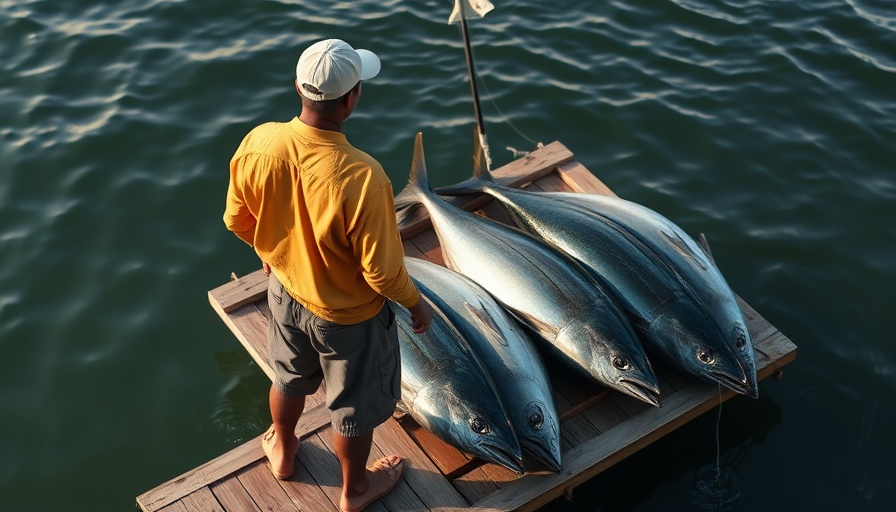
Transforming Fisheries Governance for a Sustainable Future
As our world's oceans teem with both opportunity and risk, enhancing transparency in fisheries governance emerges as a pivotal solution to a multitude of pressing challenges. According to Maisie Pigeon, director of the Coalition for Fisheries Transparency, implementing measures such as vessel ownership disclosure and tracking can significantly curb illegal fishing, bolster fish stocks, and support coastal communities. The dynamic interplay between stakeholders in fisheries—from national governments to local fishers—require a commitment to transparency, aimed at ensuring that this vital resource is utilized sustainably.
Understanding the Cost of Opacity in Fisheries
Fishing conflicts often stem from unclear regulations and lack of communication among those who catch fish, leading to overfishing and resource depletion. Notably, estimates suggest that illegal, unreported, and unregulated (IUU) fishing accounts for around 20% of the global catch, jeopardizing ecosystems and food sources. Pigeon highlights how transparency not only benefits fish populations but also uplifts the livelihoods of small-scale fishers who can be edged out by larger industrial operations. By documenting who owns what, and revealing the activities of fishing vessels, transparency can shrink the space for overfishing.
The Coalition for Fisheries Transparency: A Global Movement
The Coalition for Fisheries Transparency comprises over 50 civil society organizations worldwide, working towards a framework of transparency through comprehensive guidelines. One such guideline is the Global Charter for Fisheries Transparency, detailing ten policy principles aimed at ensuring responsible fishing practices. The coalition strives to spotlight the importance of beneficial ownership—disclosure that pinpoints the “real owners” pulling the strings behind fishing corporations. Pigeon emphasizes that enhancing vigilance leads to better policies, and ultimately, sustainable fisheries.
The Role of Ethical Consumerism in Fisheries
As Eco-friendly readers, your choice to advocate for sustainable seafood practices plays a crucial role in curtailing the problems associated with unclear fishing practices. By supporting brands that prioritize transparency and sustainable sourcing, consumers can drive change within the industry. Ethical consumerism acts as a powerful mechanism to influence how fish are harvested and sold, reducing the carbon footprint tied to unsustainable practices. Your decisions at the market can foster an environment of accountability, leading to better stewardship of our shared ocean resources.
Future Predictions: The Need for Coordinated Action
Looking ahead, the anticipated shift towards increased transparency may also demand more robust regulatory frameworks enforced by governments around the globe. Pigeon notes that while competing interests might complicate legislative progress, there is palpable momentum toward embracing transparency as a motorway to equitable ocean governance. As governments receive pressure from environmentally conscious social movements, more countries may adopt policies grounded in ethical sourcing and environmental stewardship.
Take Action for Sustainable Fisheries
The call for action is clear: supporting sustainable fishing practices through informed purchasing decisions and advocacy can bring forth a significant change. Engaging in community discussions on fisheries and demanding transparency from suppliers are crucial steps we can take. By participating in initiatives aimed at protecting our oceans, we can help ensure that fish stocks remain viable for future generations and that coastal communities thrive.
 Add Row
Add Row  Add
Add 



Write A Comment